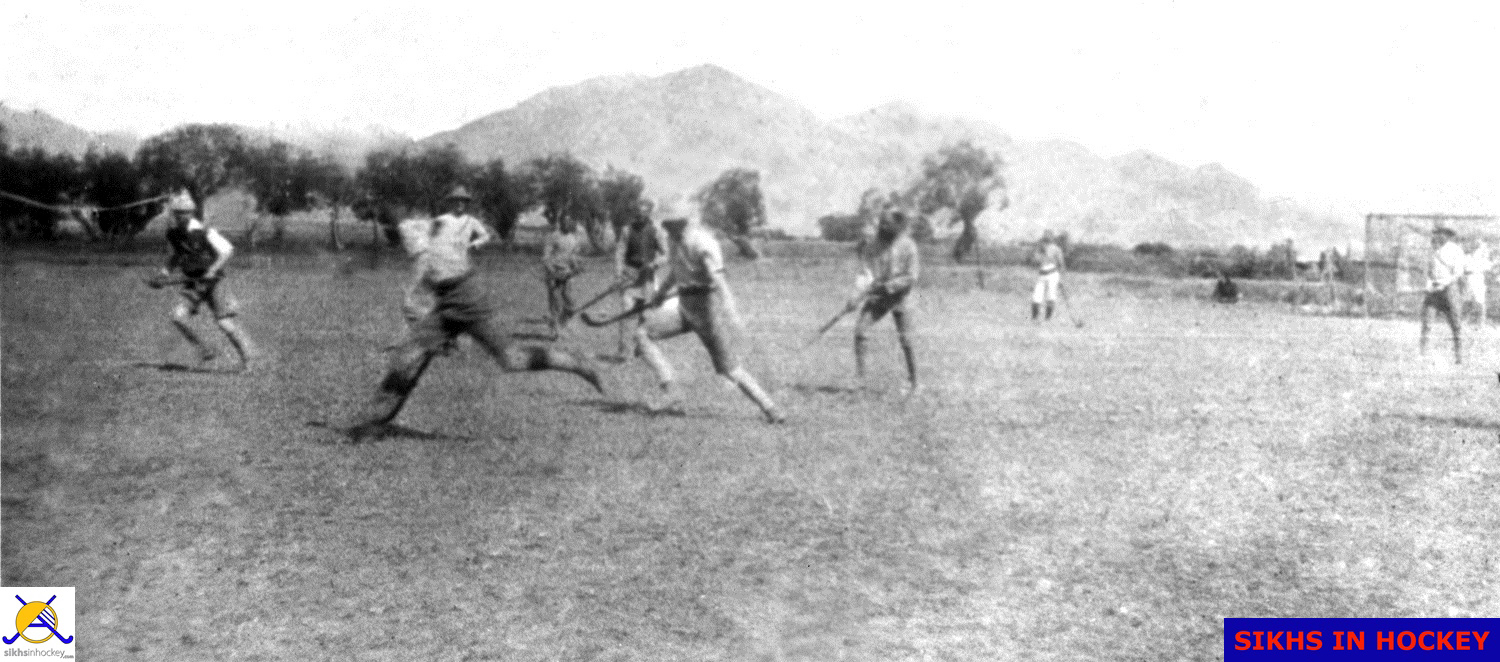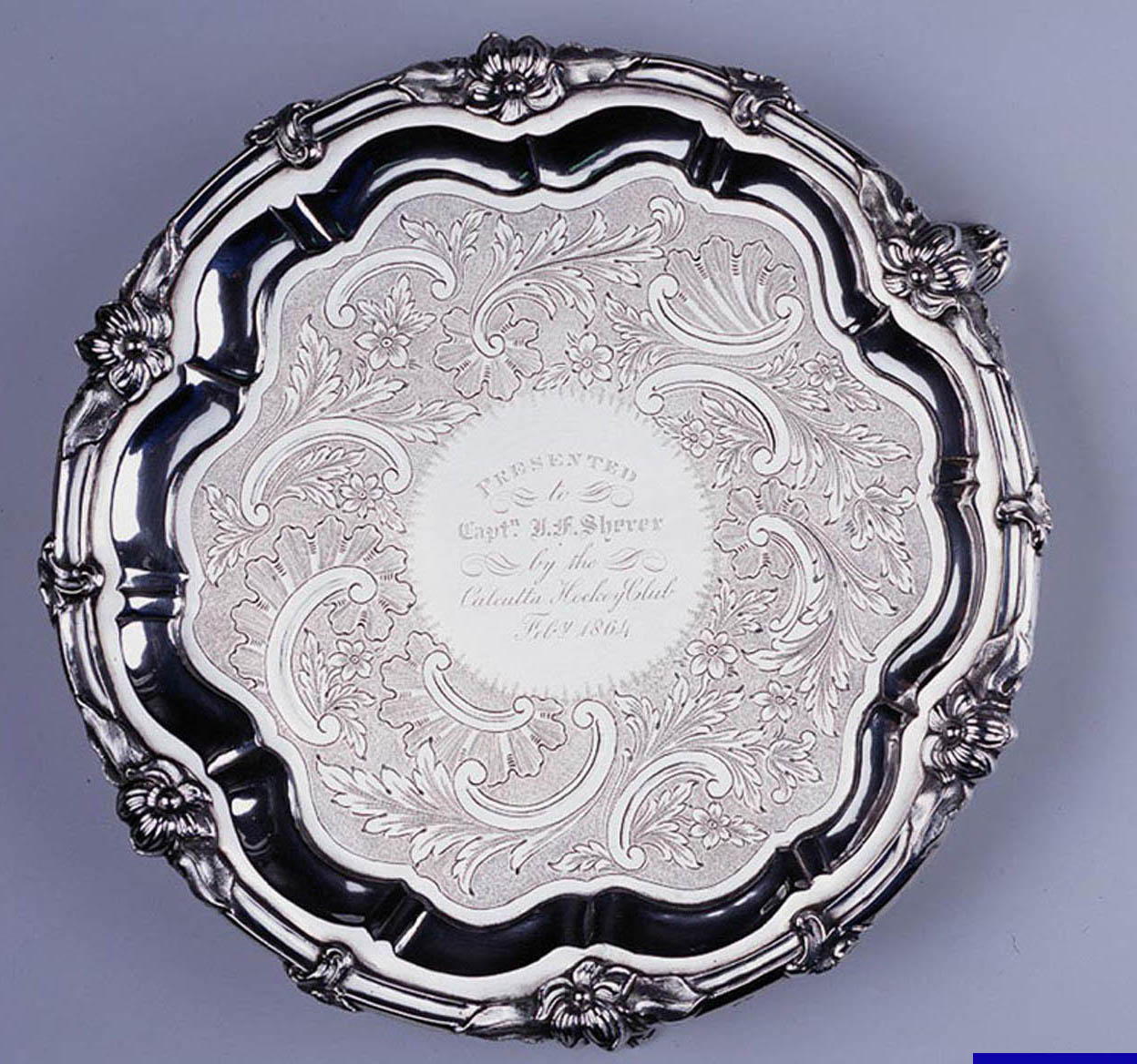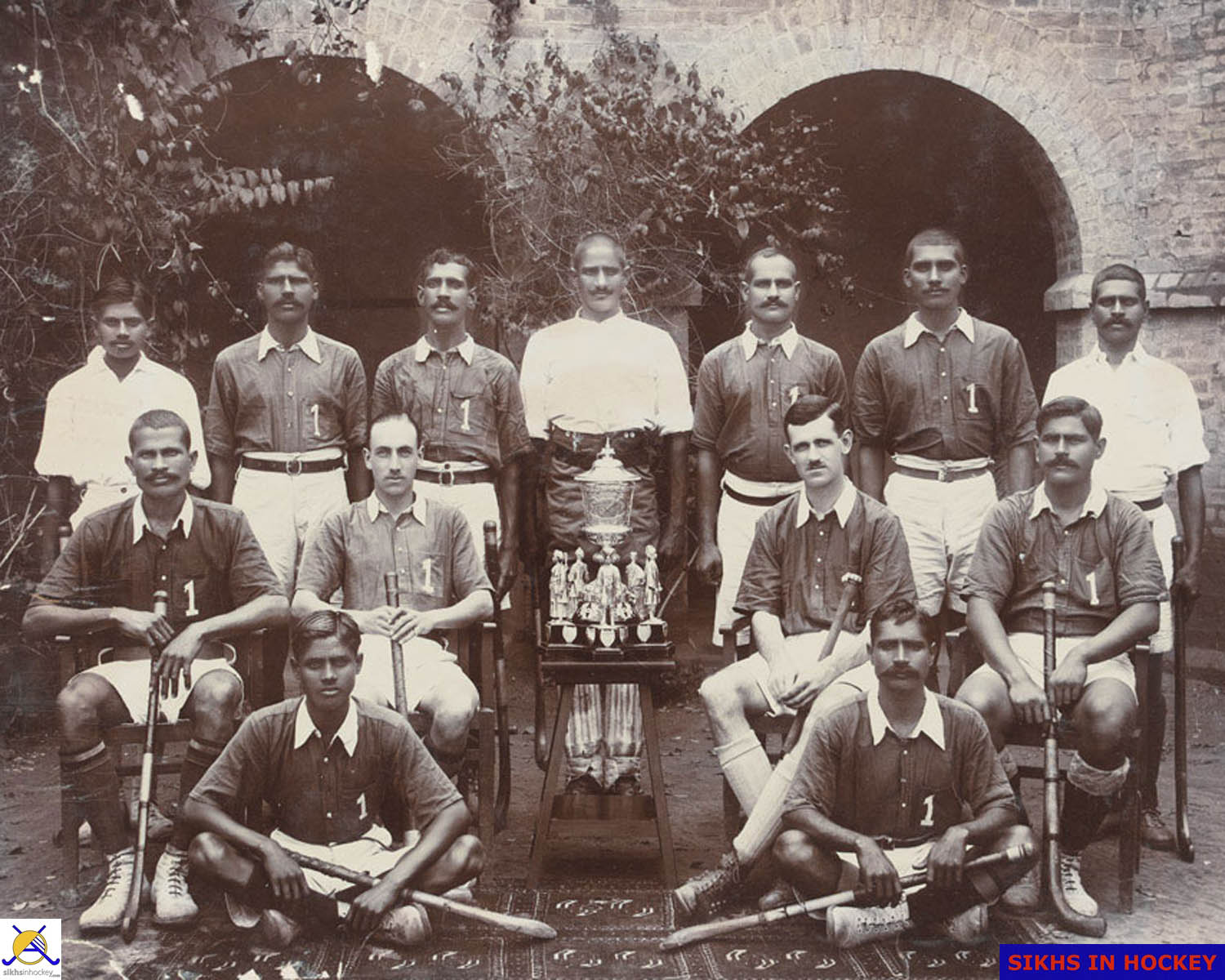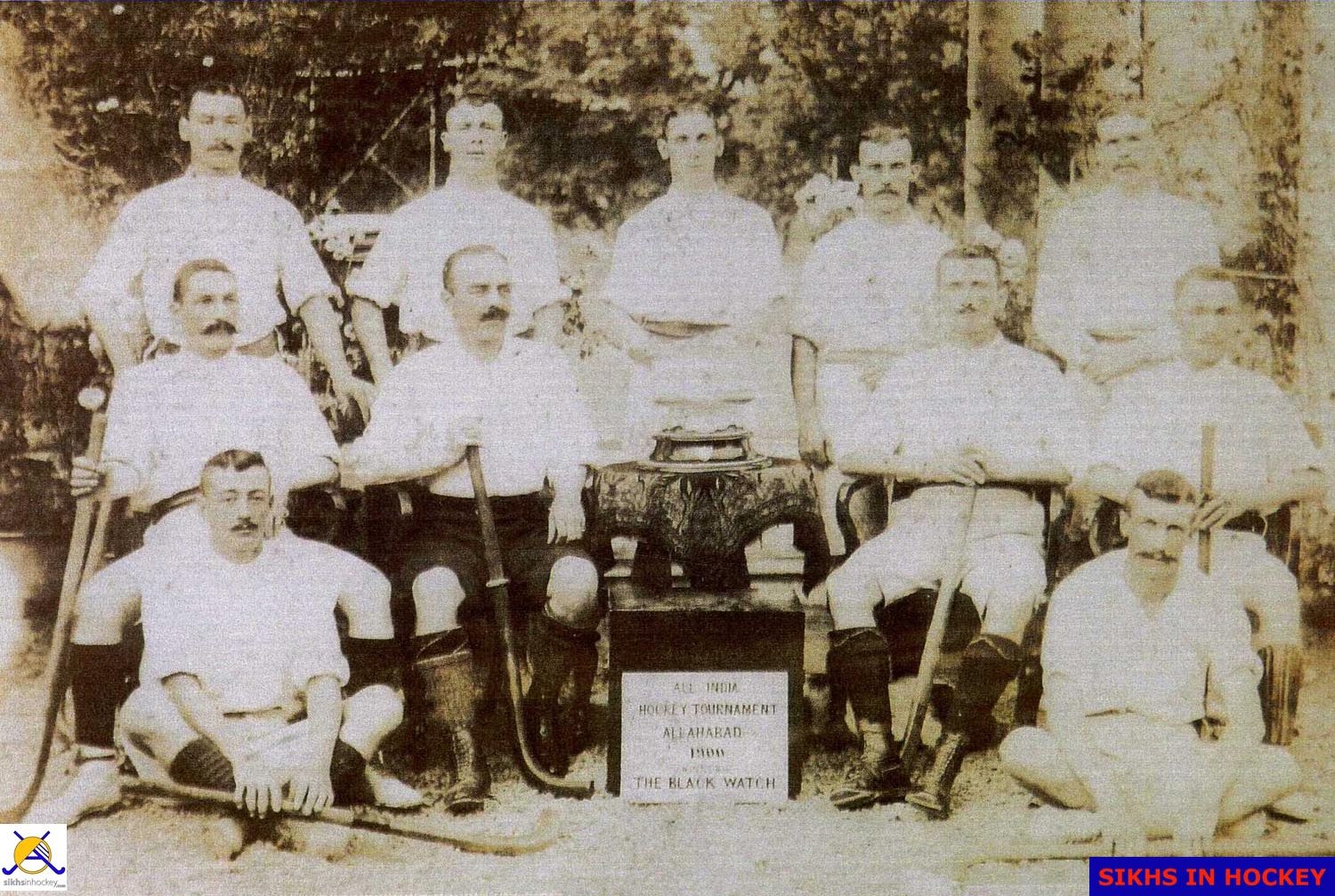EARLY HOCKEY IN INDIA, TOURNAMENTS ARE GALORE
EARLY HOCKEY IN INDIA, TOURNAMENTS ARE GALORE
Share
INDIA, for many, is a hockey nation. However, it is difficult to say exactly when field hockey was first introduced there but it could conclusively be said that it was going very strong in 1900 and even a couple of decades earlier. Hockey on horsebacks, now known as Polo, was played in Kolkata (formerly Calcutta) in the 1860s and Calcutta Hockey Club was in existence in 1864.

My personal feeling is that the game was started by the Irish Brotherhood who built many Missionary schools across India which were, in the main, attended by the elites and Anglo-Indians. Hockey became very popular in these schools and many continued playing the game after leaving school for their work teams which were mainly the railways – normally starting as apprentices at railway workshops.
Most of the pioneering clubs in railway centres in India were composed of Anglo-Indians who were to make a profound impact on the game globally, especially in distant Australia, a powerhouse of the modern game. The game was, however, spread and popularised by the Army who were better organised throughout the country and the Empire.

British Officers playing hockey while wearing topees against a Sikh regiment comprising native Punjabis near Kyber Pass in 1904. Photo: Michael Turnbull
The Anglo-Indians played the short pass game which markedly differed from the long hit game the British Army played at the time. Hockey in Britain in the early 1900s was a long hit game and was played during winter months on wet grounds. However, more favourable weather conditions in India saw the game played throughout the year.

By 1900, several important tournaments were being played in India. The Beighton Cup tournament of Kolkata which started in 1895 and the Aga Khan tournament of Mumbai (formerly Bombay) which started a year later in 1896 were considered to be the top tournaments in the country. The Aga Khan, in time to come, would be referred to as the “Blue Riband” of Indian hockey.
Down south, in Chennai (formerly Madras), hockey was played at Madras Cricket Club, the first known club there in 1896. The All India Hockey Championship started in Allahabad in 1899.
Photo (r & top): The Silver salver and Silver Tankard presented to Captain Sherer by Calcutta Hockey Club in 1864. Courtesy: National Army Museum.

Punjab Pioneers Regiment in NWF (now in Pak), 1902. Bruce Turnbull is standing 2nd from left
The first 10 winners of the Beighton Cup:
1.1895: Calcutta Naval Volunteers AC (now Calcutta Rangers Club)
2. 1896: Calcutta Naval Volunteers AC (now Calcutta Rangers Club)
3. 1897: S P G Mission,Ranchi
4. 1898: S P G Mission, Ranchi
5. 1899: Calcutta Rangers Club
6. 1900: St James School
7. 1901: 1st Royal Irish Rifles
8. 1902: SPG Mission Ranchi
9. 1903: SPG Mission Ranchi
10. 1904: Hornets AC
It is interesting to note that of the first 10 winners of the Beighton Cup, the first Army team to clinch the trophy was the 1st Royal Rifles in 1901.

4th Battalion, 1st Punjab Regiment hockey team, 1923. New recruit Dhyan Chand sitting left
The first 10 winners of the Aga Khan Cup:
1.1896: Bombay Gymkhana
2. 1897: Poona Volunteers
3. 1898: Poona Volunteers
4. 1899: Royal Scots
5. 1901: Cathedral School Old Boys
6. 1902: Shropshire Light Infantry
7. 1903: Cathedral School Old Boys
8. 1904: Middlesex Regiment
9. 1905: Cathedral School Old Boys
10. 1906: Grant Medical College
Of the first 10 winners of the Aga Khan Cup, however, the first Army team to emerge triumphant was the Royal Scots in 1899.
The All India Hockey Tournament which was founded in 1899, The Punjab Native Army Tournament which started in 1900 and the Eastern Command Hockey Tournament were the only known events run by the Army in India in this early period.
The 38th Dogras won the Punjab Native Army Tournament in 1900 with the 15th Sikhs finishing runners-up. The following year the 15th Sikhs held the cup aloft after beating the 26th Punjab Infantry in the final. The 23rd Sikh Pioneers won the tournament around 1904 with the 26th Punjab Infantry taking the runners-up spot.
The Black Watch (Royal Highlanders), a Scottish Infantry Regiment, took top honours at the All India Hockey Tournament in Allahabad in 1900. In 1909 the 1st Brahamans reigned supreme at the Eastern Command Hockey Tournament. The young Sepoy Dhyan Chand, who joined the Army in August 1922, is seen in the classic photo above.

Black Watch team, winners of the All India Hockey Tournament, Allahabad, 1900
The big development in the 1920s was the staging of National Championship, the first edition of which was held in Kolkata. Though primarily instituted to select the team for the 1928 Olympics, the event slowly emerged as an entity itself. However, the historic development was not without criticism.
In particular, such a multi-faceted personality as Charles E Newman, who later umpired Olympic matches, was clearly spot on when he observed that that “National Hockey Championship was a rather pretentious title and, in fact, a misnomer. The rules make it quite clear that this earliest of championships, however unwarranted the title, was as much a social as a hockey gathering, with dinner parties, receptions, dances, regimental tents and bands.” He further added that ‘modern umpires and officials may be amused to know that those early rules provided for two umpires, two linesmen, two goal judges (on request), substitution of players in certain cases by permission of the opposing captains and finally, that in any case of dispute about the rules, the secretary’s decision was final’.
NOTE: To establish how hockey first started in India would need a lot more research. The first Missionary schools in Kolkata and St George’s College in Mussoorie, a hill station in the state of Uttarakhand, which opened in 1853, would be key to this finding.


We are proud that India is a hockey nation, and to know all its history thro this article. Its very well written. Its a great fun to know that how the umpiring was done in those times.
Sagar hockey, thank you. In the early 1920s there was more hockey played in India in a week or two than was played in England in a whole season. Just shows how popular hockey was then
It’s a commendable work. Interesting history of early India. It seems a lot also remains to be done. There are many institutions in India who do good historical research. These should take up from where the author completes. Expect many more from your repertoire. Thanks
Natarajan, thank you for your interest. You are right a lot of research still needs to be done. This article is Part 2 of a 7 Part series leading up to the Amsterdam 1928 Olympic Games.
Glorious history of Indian Hockey.
Great work
Ajay Tiwari, we have a very rich hockey history
Painstaking effort. Many unknown facts. Thank you for the wonderful work
Thank you Rohjt Thakur
Wonderful research Dil to give us information of the early history of the start of hockey in India and details of the early start of the major tournaments played in India.
I am very pleased to mention that l have played in both these tournaments. I played for Sikh Union Club Nairobi and we took part in both these tournaments in 1971. All the major teams of India participated in these tournaments.
I hope the high level of completion is still enjoyed by the Indian Club teams.
Thank you Surjit. Would be good to find out how many Clubs from overseas have played in these tournaments.
Yes we are proud of that Indian hockey 😂☺️
Anil hockey, Spot on. We should be proud of our rich history
Nice group 👍👍
Dilbara
Along with Surjit I played in the two tournaments came runners up at the gold cup 1971
Ravinder Laly
Ravinder, nearly fifty years ago. Deserves a 50th celebration / reunion next year
Golden era of hockey and the best of players doing best to keep India on top.